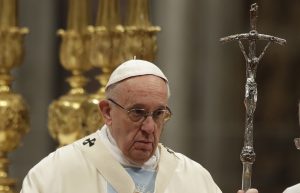
In a recent speech delivered to a gathering of the Roman round table of The Global Foundation at the Vatican, Pope Francis addressed economics. Specifically, he suggested that a capitalist ideology which is unconcerned about the marginalized has run rampant across the world. Acton Institute’s director of research, Samuel Gregg, suggests that the evidence does not support this argument. Gregg explains this in his latest for the Stream: “Pope Francis and the Myth of Radical Capitalism.”
Gregg lays out some economic history to prove that a “radical capitalist ideology” has never taken over:
Looking outside the developed nations, can it really be said that free market ideas have conquered the Middle East, North Africa or Russia? Crony capitalism — a polar opposite of free markets — is the norm throughout, for example, in Russia.
Until quite recently, many Latin American nations (including the pope’s native Argentina) were dominated by the decidedly anti-free market agendas of the left-populist governments which came to power in the early-2000s. I’ve often wondered why the pope seems so reluctant to criticize the “21st century socialist” policies associated with figures such as the late Hugo Chávez, which have inflicted destruction upon countries like Venezuela.
In the last section of Gregg’s article he clears up any confusion surrounding the ideas of capitalism. It’s more than just markets:
Besides the fact that it’s hard to find countries with unbridled capitalism (let alone promoting radical capitalist ideas), the pope seems unaware that few free market thinkers believe that market forces are enough to resolve issues of marginalization and poverty.
What’s missing in many countries are (1) institutions such as rule of law and clear property rights and (2) the cultural settings in which, as John Paul II’s Centesimus Annus insisted, markets must be imbedded if they are to work. It’s not hard to find free market economists — many of whom are Christians who take seriously the Gospel’s non-negotiable commandment to help the poor — who have focused on how to strengthen such institutions and cultures in countries where they are weak or don’t exist. Indifferent to poverty, they are not.
You can read Gregg’s full article at The Stream.

